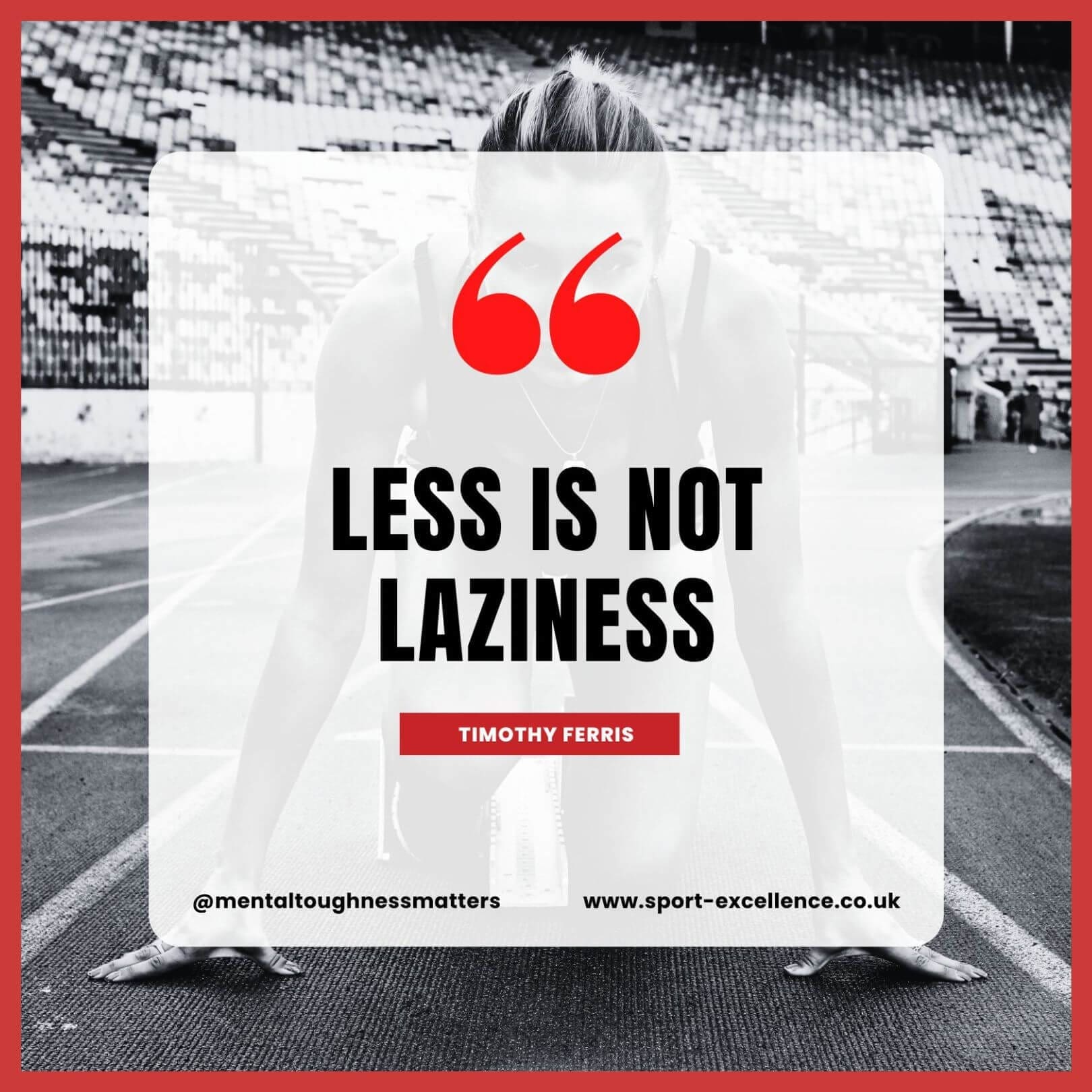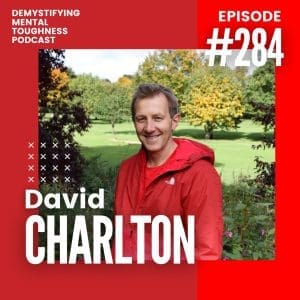25 May 2024

Helping You Gain A Mental Edge
5 Important Lessons On Commitment From The 4 Hour Work Week
I hope you are well and 2024 has been good to you so far. I’ve been slow with the creation of this Mental Edge, which I sincerely apologise for. It is probably the biggest gap that I’ve left between publications for almost 4 years. I have aspired to ensure that the Mental Edge is circulated every 2-3 weeks in 2024 as I’m really keen to make a positive difference to people’s lives however some personal challenges have taken precedence recently so I had to prioritise my workload and look after myself during this period. Here’s to a smoother second half to 2024! As Timothy Ferris suggests in his hugely popular business book The 4-Hour Work Week sometimes “doing less is not laziness” so I heeded this advice.
Have you read The 4-Hour Work Week? If not, I’d really recommend it. It’s a book I’ve had a number of years now and something I go back to from time to time to remind myself of what is possible and thoroughly enjoy reading and re-reading it. It is written to help readers, generally business owners, business professionals and entrepreneurs question the way they live and work and how they use their time.
5 things an athlete or sport coach learn from this book?
1.Doing less is not laziness.
We’re told to reach the top in sport you HAVE to be hugely committed, you HAVE to make a lot of sacrifices, you HAVE to put in a minimum of 10,000 hours to give yourself a chance to succeed. We’re also told to practice till it hurts, to play through pain. Up to a point this is true in my opinion however what Timothy Ferris cleverly does is make your question this assumption and recognise that cultures drive this messaging where we reward sacrifice yet ignore being productive and efficient. He helps you learn what being efficient is in your world.
2. Play or coach your sport on your terms.
Timothy gets you to think about the goals that you set yourself and why you set them. To appreciate what excites you about playing or coaching your sport. He also gets you to question unhelpful assumptions that you make and society reinforces.
3. Elimination and learning to overlook unimportant things.
In sport, often our emotions can take over after we’ve won or lost or made mistakes. Many athletes can get caught out reacting to situations, working on things out of emotion rather than because they are calculated. Coaches too can fall into this trap, especially the results driven coach. This book can help you recognise what is important, how you can make smarter choices on how to spend your time, eliminating unimportant tasks.
4. Emphasize strengths, don’t fix weaknesses.
“You MUST work on your weaknesses if you want to reach the top. Look at Jonny he is much better than you at X.” These are things athletes hear time and time again yet actually, why shouldn’t they focus on their strengths? The 4 hour working week helps you acknowledge that time spent working on what you are good at can have a huge positive impact on results, whereas excessive time spend working on your weaknesses can lead to hours of frustration, reduced confidence and mediocre results.
5. Being able to quit things that don’t work is integral to being a winner.
I’ve witnessed this a lot in my consulting where people fail to learn from their mistakes. They carry on doing what they always do without shaking things up, and shock horror they keep getting the same results. This book, The 4 Hour Work Week is great at improving your learning where Timothy gives you a huge amount of tools and resources so that you can’t fail to learn.
BONUS TIP:
MAKE SURE YOU LISTEN TO LAST WEEKS DEMYSTIFYING MENTAL TOUGHNESS PODCAST TOO
This episode features Penny Mallory who was the first woman to drive in the world rally championships. On her way to do so she showed immense commitment to her craft and made lots of sacrifices in pursuit of success. Some of the messages in this bite-sized episode are in contrast to the above tips however she does a great job at helping you question your approach as she goes on to share her secrets and the mentality that took her to the top of her sport.
Enjoy tuning in!

OTHER HELPFUL PODCAST EPISODES TO HELP YOU QUESTION ASSUMPTIONS THAT YOU MAKE ABOUT YOUR AND YOUR ATHLETES COMMITMENT LEVELS
Ep015: Nick Grantham – Essential Elements of Rest and Recovery
Ep065: Dr Amy Izycky – Encouraging Mentally Healthy Cultures in Sport
Ep138: Nick Littlehales – Why do the Mentally Tough see Sleep and Recovery as Important
Ep214: Ellen McDermott – How To Create Helpful Eating Habits To Benefit Your Sport Performance
RELEVANT RESOURCES TO HELP YOU REMAIN COMMITTED AND ON TASK
Blog: How Mentally Healthy is Your Clubs Sporting Environment
Blog: 6 Reasons Why Goal Setting Doesn’t Work
Download THE FOCUSED ATHLETE CHECKLIST
YOU MAY ALSO WANT TO CHECK OUT THE FOLLOWING ACADEMIC PAPERS, BOOKS, VIDEOS and PODCASTS TO IMPROVE YOUR UNDERSTANDING OF MOTIVATION AND COMMITMENT
Book – The 4-Hour Workweek: Escape 9-5, Live Anywhere, and Join the New Rich: Ferriss, Timothy
Website – Self Determination Theory which looks at a framework for the study of human motivation.
Ted Talk – Promoting Motivation, Health, and Excellence: Ed Deci
Video – YOU OWE YOU | Motivational Speaker: Eric Thomas
SPORT SPECIFIC RESOURCES FROM OUR SPORTS PSYCHOLOGY LIBRARY TO HELP YOU
BUILD YOUR COMMITMENT LEVELS IF YOU PLAY FOOTBALL OR SOCCER
We also publish a regular newsletter with tips and tricks for those interested in the psychology of football or soccer. Feel free to sign up today.
3 WAYS TO LEARN MORE ABOUT OUR WORK:

Best Wishes
David Charlton
Online Sports Psychologist | Mental Performance Coach who supports many highly motivated athletes, young and old, developing their skills or who are already highly skilled so that they gain a mental edge and get the most from their talent across the globe from USA/Canada to Great Britain and Ireland to UAE, South Africa, Australia and New Zealand, using ONLINE Video Conferencing.
Managing Director – Inspiring Sporting Excellence
Host of Demystifying Mental Toughness Podcast
Founder of The Sports Psychology Hub
Author of The Mental Edge
With over a decades’ experience supporting athletes, coaches, parents and teams to transfer their skills from training to competitive situations, under pressure.
T: +44 7734 697769







